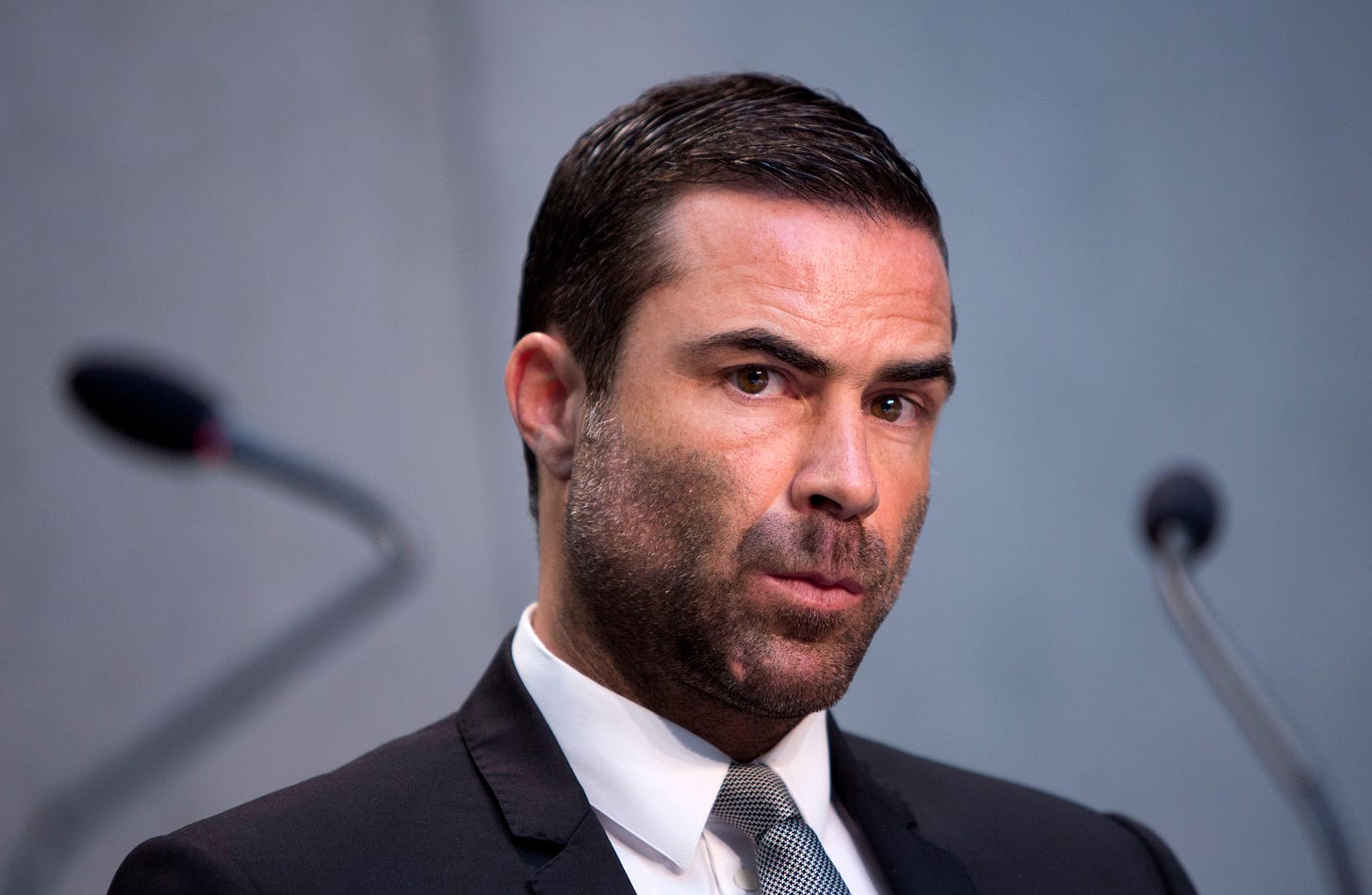Vatican prosecutors are investigating a potential financial conflict of interest for the former head of the Holy See’s financial watchdog authority, which leads anti-corruption efforts and other financial oversight duties in the Vatican.

René Brülhart, who served as president of the Financial Information Authority until November 2019, was paid as a consultant by the Secretariat of State at the same time he held a financial oversight position, The Pillar has confirmed.
The arrangement could be seen to violate the impartiality required for Brülhart’s work in financial law enforcement. He was indicted this month for alleged abuse of his Vatican office.
Brülhart’s financial relationship with the Secretariat of State was confirmed to The Pillar by his lawyer on Monday.
Brülhart’s lawyer says the arrangement was above board and that a contract between his client and officials of the Secretariat of the State is in the possession of Vatican prosecutors. But two sources in the Vatican’s Secretariat of State and Secretariat for the Economy say questions about Brülhart’s dual roles have gone unanswered, and are likely at the center of prosecutors’ investigations into the former Vatican official.
One senior Vatican source told The Pillar that Brülhart was paid at least 300,000 euros annually for his work as president of the AIF (subsequently renamed the ASIF), a role which only required him to work the equivalent of two days per week, the source said.
The same source told The Pillar that, at the same time, Brülhart was separately contracted for a similar amount by the Secretariat of State to act as an “advisor,” an arrangement which would seem to present a potential conflict of interest, given the Secretariat’s business dealings with financial institutions under the purview of the agency led by Brülhart, including the Institute for Works of Religion.
Sources at the Secretariat for the Economy and the Secretariat of State said that the consultancy payments were arranged by Cardinal Angelo Becciu, the now-indicted cardinal who served as sostituto at the Secretariat of State from 2011-2018.
A senior source close to the Secretariat for the Economy told The Pillar that payments from the Secretariat of State to Brülhart were not made known to the Vatican’s economic secretariat, which was charged by Pope Francis with reforming Vatican accounting and administrative procedures.
“In hindsight, it explains a lot,” the source said.
In response to questions on the arrangements, Cardinal Becciu told The Pillar on July 12 that he had instructed his lawyer to issue a statement on the matter on his behalf; the statement has not been received as of time of publication.
A lawyer for Brülhart told The Pillar that suggestions his client’s ties to the Secretariat of State were kept off-books is “without foundation and shocking,” and denied the consulting arrangement was handled through Becciu.
“In fact, the contractual relationship between Dr. Brülhart and the Secretariat of State was regulated by a formal contract signed by His Most Reverend Eminence Cardinal Pietro Parolin,” the lawyer said.
Without commenting on the alleged amounts Brülhart was paid, the lawyer added that “the contract concerning the activity carried out by Dr. Brülhart, with the relative remuneration, is in the records of the [current legal] process” and that it would be “easily verifiable how the contract contemplates both the AIF activity and that of consultant for the Secretariat of State and for the Secretariat for the Economy.”
The Pillar reviewed the 488-page document released by Vatican prosecutors in support of the indictments handed down on July 3. The Pillar was unable to identify the contract, or a similar document establishing the details of the financial relationship between Brülhart and the Secretariat of State acknowledged by Brülhart’s lawyer on Monday.
The acknowledgement that Brülhart received separate remuneration from the Secretariat of State during his tenure as president of the AIF raises new questions about his time in that post, and his involvement in the Secretariat of State’s London property scandal.
The Vatican investigation into the deal, which saw the secretariat pay more than 350 million euros for a building in West London in 2018, began in July of 2019, following a complaint from the Institute for Works of Religion, a Vatican bank.
Gianfranco Mammì, the IOR director general, complained to Vatican financial watchdogs about the “opacity” of a formal request for a 150 million euro loan from the Secretariat of State intended to refinance a mortgage on the London building which the secretariat acquired as part of its purchase of the building from its former investment manager, Raffaele Mincione.
As part of a sprawling 400-page indictment file, Vatican prosecutors allege that Brülhart and Di Ruzza worked with officials at the Secretariat of State to retroactively construct a justification for paying millions to Gianluigi Torzi, the man who brokered the final transfer of the building from Mincione to the Vatican.
Brülhart’s name was a surprise inclusion among those who will face trial beginning July 27, and he has an established reputation for anti-corruption work in European banking circles. Prior to being named president of the AIF by Pope Francis in 2014, Brülhart served as the agency’s director beginning in 2012. Prior to that, Brülhart led the financial intelligence unit of Lichtenstein and was widely praised for his financial reforming work in the principality.
The Swiss lawyer served as the president of the AIF from 2014 until his controversial departure in November 2019. At the time, there was uncertainty if Brülhart had been dismissed or had resigned, with the Vatican eventually insisting he had departed at the end of a previously agreed term of office.
His departure followed a controversial raid on the AIF offices by Vatican gendarmes in October 2019, during which computers and files were seized as part of the investigation into the Secretariat of State’s London property scandal. That raid led to the temporary expulsion of the AIF from the Egmont Group, the international cooperating mechanism by which financial intelligence bodies share information.




